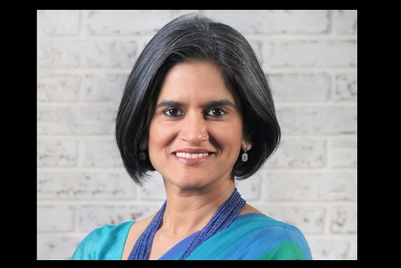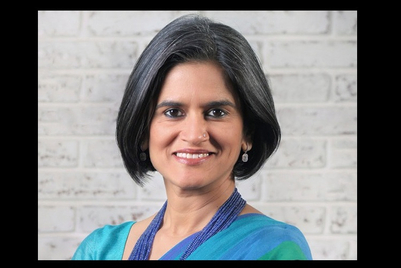The 11th edition of MMA Impact 2022 featured a fireside chat with Manisha Lath Gupta, marketer, entrepreneur and sustainability practitioner.
Sonali Krishna, anchor and senior editor, ET Now, moderated the session.
The conversation dived into the importance of a CMO, diversity in the workspace, and creating effective purpose-led strategies for a brand.
Importance of a CMO
In her opening statement, Gupta shared, “Traditionally, marketers worked with FMCG brands or those that had healthy profit margins. With high-profit margins, it is possible to build a brand."
She continued, "The consumer tech companies in the BFSI sector have very thin margin companies, which is why they don’t spend on building a brand. That is one of the reasons why marketing becomes a support function for them.”
“For big brands and businesses, even the 50% of margin that they make can give them decent marketing budgets. But because they are not marketing organisations, the teams don’t get guidance, training, or confidence to market the brand. Thus the role of a chief marketing officer is important to define a theme and role for marketers”, added Gupta.
Brand building
When asked about companies who are investing on social media after the popularity of Instagram reels, Gupta explained, “We are going to a phase where there are too many products and services but not enough need for many of them. The reason why companies can fund and still run businesses with these emerging services is that a lot of money is flowing into the system. Everybody is just throwing money on advertising or social media. But this phase disappears when the money is squeezed out of the system. There should be a consumer need to invest in a product or service.”
Talking about the importance of using data correctly, she believed that marketers have data, but no insight. "Data will tell you what people do, but not why they do it. This doesn’t allow a brand to have better engagement with its consumers."
Diversity in the workspace
Talking about how the societal pressure to hire women has made men a diversity target, Gupta said, “We seem to be moving forward but not at the pace that we would like to. Now because there is huge pressure on diversity and it's talked about so much, every man in an organisation has become a diversity target. That means the need for hiring a woman has become important. But what they have still not come to terms with is that once a woman is hired they expect that she will be grateful for that job. But what they are not prepared for at all is that she actually might be competent.”
“Women right now are not facing a glass ceiling issue but have to tackle a glass cliff. As long as there is gratitude when hired, men become diversity king. But when they feel threatened, they get gently ticked off the edge”, she added.
Gupta feels that change is not a corporate problem, but a societal issue.
She said, “Our corporate world is the reflection of our society. When we don’t raise better men, it won’t reflect in the workspace. If we keep telling boys when they are growing up that they are special, they grow up and expect the same treatment at the workspace too.”
“The rules and policies at the workspace should change. For instance, instead of increasing maternity leaves for women, increase or start paternity leaves for men. When changes like this take place it becomes more gender-neutral”, remarked Gupta.
Sustainability and purpose-led practices
Gupta suggested that corporates need to understand the root problem, and only then can they look to solve it.
She explained, “If they can’t understand a problem how can it be solved? Time needs to be spent to understand how nature works or how the planet and its elements work. If you don’t understand sustainable practices, the respect for following them won’t come through.”
“We are facing an issue where water and resources are going to be an issue. We might have more violence and distress because of these depleting resources. It is not futuristic it is happening now”, said Gupta.
Signing off, Gupta said, “We need to reimagine our businesses and make it more sustainable for ourselves and the future of the businesses The fundamental changes need to be made in our products and services. Brand managers, product managers and R&D teams need to start relooking at what is being put into a product. We are still using a 1950s chemistry for our personal care products. We need to shift to a much greener alternative. We also need to look at where the raw materials originate and where the end of life products are decomposed. We need to build smarter products for the future.”




.jpg&h=334&w=500&q=100&v=20250320&c=1)
.jpg&h=334&w=500&q=100&v=20250320&c=1)


.jpg&h=334&w=500&q=100&v=20250320&c=1)

.jpg&h=334&w=500&q=100&v=20250320&c=1)


.jpg&h=334&w=500&q=100&v=20250320&c=1)




.jpg&h=268&w=401&q=100&v=20250320&c=1)

.jpg&h=268&w=401&q=100&v=20250320&c=1)

